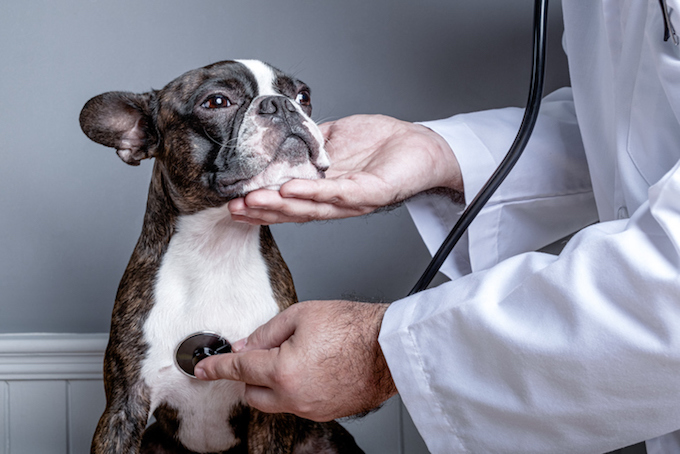Heart block or conduction delay (left anterior) in dogs is a heart condition. Usually, the condition is caused by an underlying cause.
The condition involves the left ventricle chamber in a dog’s heart. Specifically, the condition happens when it cannot contract properly.
Thankfully, the condition is considered rare.
Technically, the condition is also known as left anterior fascicular block in dogs. It can be abbreviated to LAFB.
If you see the signs of the condition in your dog, then get to a veterinarian for a proper diagnosis and treatment.
Here’s what you should know about the symptoms, causes, and treatments for the condition.
Symptoms of Heart Block or Conduction Delay (Left Anterior) in Dogs
The condition often does not produce any symptoms. This means it is asymptomatic.
However, some dogs will show symptoms. For example, some of the most common ones include:
- Acting lethargic
- Drinking more water than usual
- Peeing more than usual
- Fainting
- Breathing quicker than normal
- Avoiding exercise
Causes of the Condition in Dogs

The cause of the condition is actually an underlying cause. For instance, some of the most common underlying causes include:
- Electrolyte issues
- Heart surgery
- General heart problems
- Addison’s disease
Treatments for the Condition in Dogs
Firstly, your vet will ask about your dog’s symptoms. Secondly, your vet will ask about your dog’s full medical history.
Thirdly, a full physical examination will be carried out. Also, blood and urine tests will be taken.
Ultimately, an electrocardiogram can confirm the condition. This monitors your dog’s heart. Specifically, the performance of different chambers in the heart is compared.
Generally, treatment targets the underlying cause. This means treatment will vary. Your vet can guide you and your dog through the options.
Finally, you can read more about heart healthy tips for your dog here.
Have you ever cared for a dog who suffered from this condition? How did your vet help your dog recover? Let us know in the comments section below.









